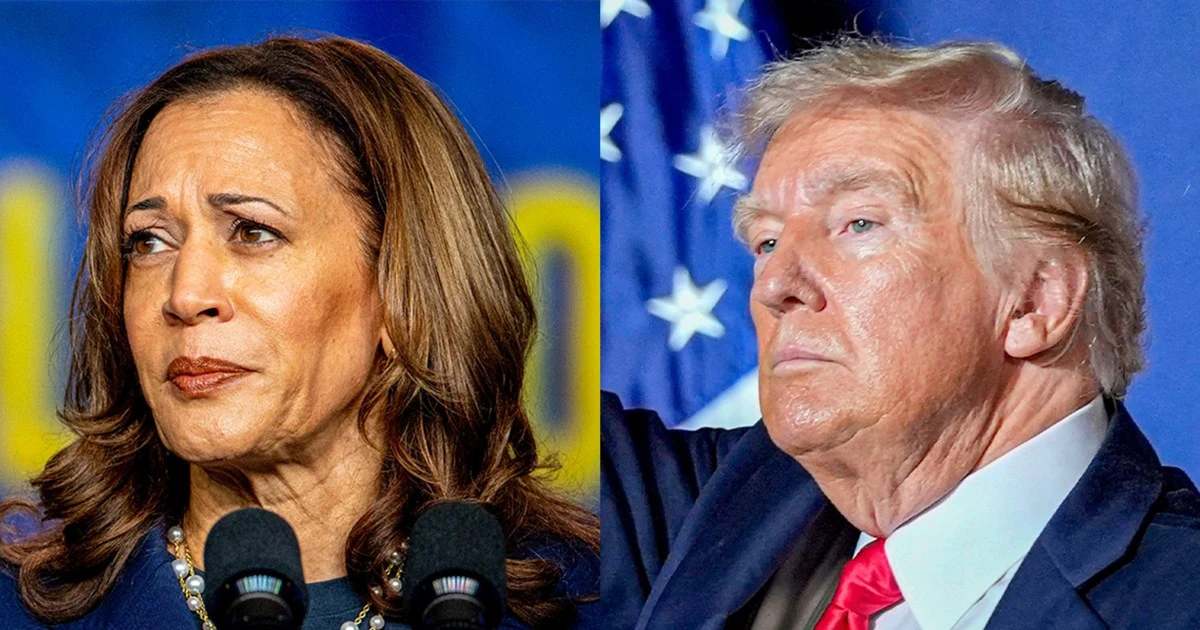After Donald Trump told journalists on Wednesday that his presidential opponent Kamala Harris “turned Black” for political gain, Trump’s comments have impacted the way many multirace voters are thinking about the two candidates.
“She was only promoting Indian heritage,” the former president said during an interview at the National Association of Black Journalists convention last week. “I didn’t know she was Black until a number of years ago, when she happened to turn Black, and now she wants to be known as Black.”
“Is she Indian or is she Black?” he asked.
She’s both.
Harris, whose mother was Indian and her father is Jamaican, would make history if she is elected president. She would be both the first female president and the first Asian American president.
Multiracial American voters say they have heard similar derogatory remarks about their identities their whole lives. Some identify with Harris’ politics more than others but, overall, they told NBC News that Trump’s comments will not go unnoticed.



Honest question here. It’s something I avoid asking most of the time because I’m not sure whether or not it’s appropriate, but would it be okay to ask, “where did your ancestors come from,” or would that still be offensive to a multiracial person? It’s not something that comes up regularly or anything, but occasionally I’ll end up in conversation with someone who is multiracial and clearly another American and I’ll think, “I wonder what their family story is? How did their predecessors get here? Where did they come from?” But I usually don’t ask because I don’t want to offend them.
Obviously I wouldn’t just walk up to a stranger and ask them, I mean if I’m getting to know someone.
Edit: I should add that I’m white, but my family history is pretty weird, so I do like to hear about others’ history regardless of their race, I just don’t want to broach the subject where it might be a sensitive one.
Or “what ethnicity are you”?
That seems to me to be almost as bad as “where are you from?” It’s not something white people are usually asked after all.
I’d suggest it would be best if someone’s racial background wasn’t made to be an important part of the conversation at all.
At least not unless it happens to have some relevance like in relation to places they have personally experienced or languages they speak or something like that.
Where a person’s grandparents came from isn’t (or shouldn’t be) a big deal compared to most other things about that person.
I disagree with this. A person’s heritage can be important. Racists attitudes can grow out of not understand a person’s culture. of course, a person’s heritage can also NOT be important. People do lose connections to the homeland and this seems to be more common in America.